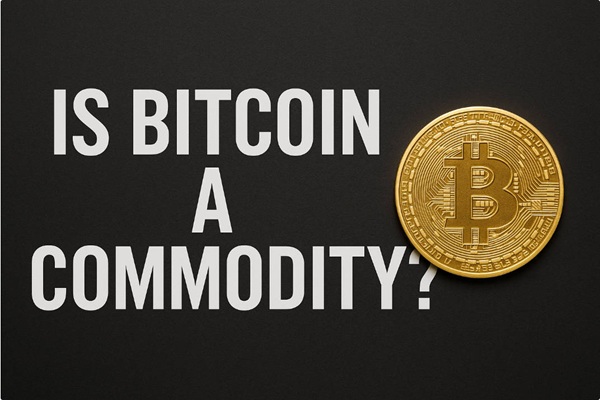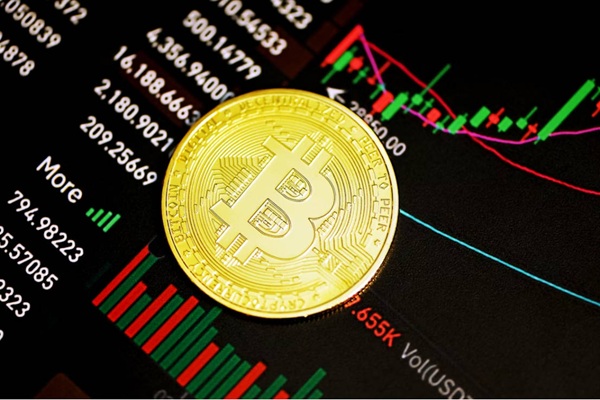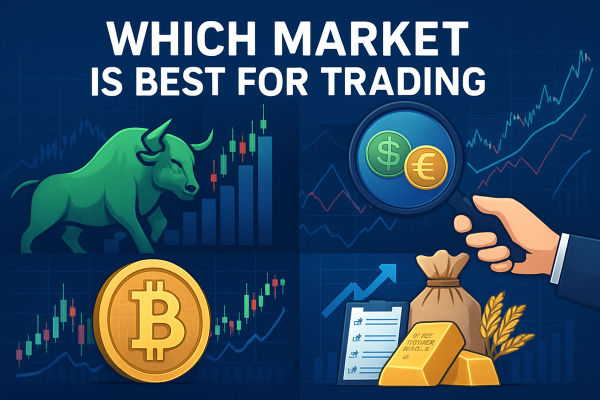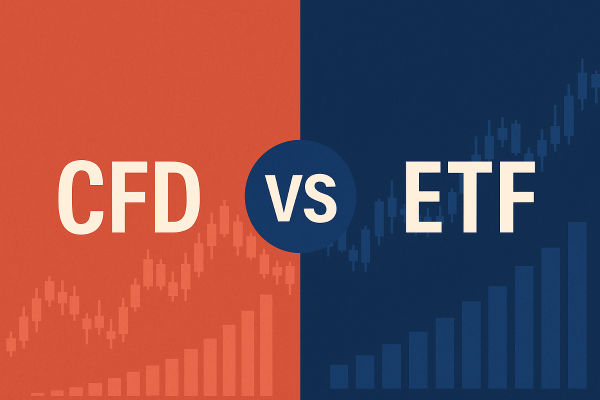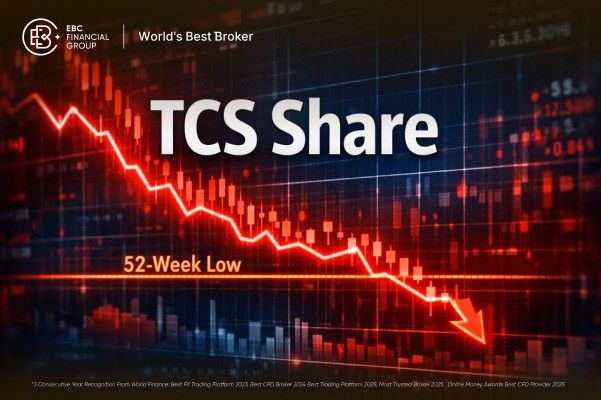Under current U.S. regulatory interpretation the digital asset Bitcoin is generally treated as a commodity.
Nonetheless the classification remains subject to conceptual debate and varies across jurisdictions.
In this article, we will examine what "commodity" means, the nature of Bitcoin itself, how regulators have classified it, and the arguments in favour and against viewing Bitcoin as a commodity.
Defining the Term "Commodity" and Its Traditional Economic Role
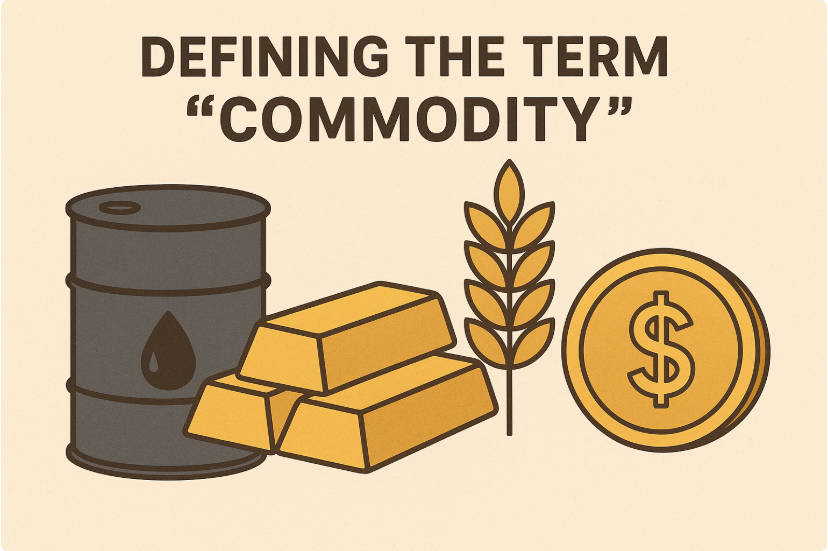
In order to assess whether Bitcoin can be called a commodity it is helpful first to clarify what a commodity typically is.
A commodity is a good which tends to be standardised, interchangeable with others of the same type, and tradable in markets based on supply and demand. For example: oil, gold, wheat.
Key Differences Between Commodities and Securities
| Feature |
Commodity |
Security |
| Fungibility / interchangeability |
High — one barrel of the same grade is essentially equivalent to another |
Varies — share of one company differs from another |
| Physical or tradable underlying good |
Yes (physical or standardised good) |
Usually represents claim on issuer or enterprise |
| Issuer‑specific promise of profit |
Not typically |
Yes — investment return often depends on issuer's activity |
| Regulatory oversight (US example) |
Commodity Futures Trading Commission (CFTC) regulates derivatives of commodities |
Securities and Exchange Commission (SEC) regulates securities |
Clearly, commodities serve as tradable raw or standardised inputs or goods. They differ in nature from securities (which represent ownership or claims). The classification matters because regulatory regimes differ and the rights and investor protections differ accordingly.
The Nature of Bitcoin: Technology, Asset and Medium of Exchange
Next we must examine what Bitcoin actually is, and how its properties align or diverge from conventional definitions of commodities.
1. Technological and functional aspects
Bitcoin is a decentralised digital currency, built on a blockchain ledger, using proof‑of‑work consensus.
It serves three widely recognised purposes: a medium of exchange, a store of value, and a unit of account, although in practice it has difficulty fulfilling the last two.
2. Asset dimension
Bitcoin's supply is capped (at 21 million coins) and each bitcoin is interchangeable with another of the same unit. The network effect gives it value beyond pure transaction utility.
3. Comparing to traditional asset classes
Because Bitcoin has no central issuing corporation and no promise of dividends, no claim on income or assets, it starts to resemble more a commodity (which has no issuer) than a security (which involves an issuer). This is one of the core reasons why some regulators view it as a commodity.
The Regulatory Classification of Bitcoin in the United States

In the American regulatory context, classification of Bitcoin is particularly well documented.
The U.S. Commodity Futures Trading Commission (CFTC) has determined that virtual currencies such as Bitcoin are commodities under the Commodity Exchange Act.
The agency states that its jurisdiction is engaged when a virtual currency is used in a derivatives contract, or when fraud or manipulation in interstate commerce is involved.
In contrast the Securities and Exchange Commission (SEC) uses the Howey Test to determine whether an asset is a security (investment of money, common enterprise, expectation of profit from efforts of others).
Within the U.S. framework therefore Bitcoin is widely treated as a commodity—but this does not mean every jurisdiction takes the same view.
Arguments Supporting Bitcoin's Status as a Commodity
There are several compelling arguments in favour of viewing Bitcoin as a commodity.
Interchangeability/fungibility:
Each bitcoin is essentially identical in protocol terms to another bitcoin.
No central issuer or entity promising profits:
Bitcoin does not depend on a company management team's efforts to generate returns.
Tradable globally on open markets:
Derivative contracts (futures) exist for Bitcoin, under commodity regulation mechanisms.
Regulatory precedent:
The CFTC's classification gives strong practical support to the argument.
Aligns with commodity behaviour:
As with other commodities, Bitcoin's value is heavily derived from supply‑demand dynamics rather than underlying corporate earnings.
Arguments Challenging or Complicating the Commodity Label for Bitcoin
There are also notable arguments and caveats against automatically labelling Bitcoin as a commodity.
1. Lack of physicality and industrial utility
Unlike traditional commodities (oil, grain, metals) that have physical uses and consumption, Bitcoin is purely digital and does not feed into industrial processes. This calls into question whether the commodity analogy fully holds.
2. Currency‑like attributes
Bitcoin attempts to function as a medium of exchange, store of value, and unit of account. However, studies indicate it fails reliably as a unit of account. This ambiguity blurs the line between currency and commodity.
3. Jurisdictional and regulatory diversity
Globally, regulatory treatment varies considerably. In some countries Bitcoin may be treated as property, currency, commodity, or even banned.
4. Hybrid behaviour
Bitcoin behaves partly like a speculative asset (seeking capital gains) rather than purely a commodity input. That raises the question of whether the commodity label captures its full nature.
International and Comparative Regulatory Perspectives

The classification of Bitcoin around the world is far from uniform. Some jurisdictions treat it as property for tax purposes; others treat it as a commodity; still others as a currency or payment system.
Bitcoin Classification Across Major Jurisdictions
| Region / Jurisdiction |
How Bitcoin is classified |
Notes |
| United States |
Commodity (via CFTC) |
Gives clarity for derivatives markets. |
| European Union |
Varies by country; convertible virtual currency in some contexts |
VAT/MiCA rules provide emerging framework. |
| Other countries (e.g., Canada, South Africa) |
Often intangible asset or property |
Taxation rather than commodity regulation dominates. |
Implications of regulatory diversity
Because treatment differs globally, cross‑border trade and taxation become more complex. Investors and platforms must navigate different regimes. Divergent classifications can lead to regulatory arbitrage, uncertainty and investor risk.
Trends and potential convergence
There are signs of regulatory convergence, as authorities recognise the necessity of tailored frameworks for digital assets. For example, in the U.S. and Europe regulatory agencies are considering how to adapt existing commodity and securities laws to crypto assets.
Practical Implications for Investors and Market Participants
Understanding whether Bitcoin is a commodity rather than a security has direct implications for investors, fund managers, custodians and market infrastructure.
1. For investors
If treated as a commodity you may access futures and commodity‑style derivatives rather than equity‑style products.
Regulatory protections differ: commodities generally have fewer issuer‑disclosure requirements than securities.
Portfolio allocation decisions may treat Bitcoin more like a commodity hedge than a growth equity.
2. For market infrastructure
3. Risk profile
Commodity classification may reduce some legal uncertainty, but Bitcoin remains a high‐volatility asset subject to unique risks (cybersecurity, regulatory change, market manipulation).
Classification as commodity does not eliminate investor risk or mean it behaves exactly like traditional commodities (e.g., oil, wheat).
Comparison of Bitcoin as a Commodity Versus a Security
| Consideration |
If Bitcoin is treated as a Commodity |
If Bitcoin were treated as a Security |
| Regulatory disclosures |
Typically fewer issuer obligations |
Extensive issuer disclosures required |
| Market access |
Commodity futures, open markets |
Securities exchanges, possible accredited investor restrictions |
| Investment rationale |
Supply‑demand, store of value, speculative |
Profit from issuer efforts, dividends, structured returns |
| Investor protection |
Commodity rules (fraud/manipulation) |
Securities rules (issuer accountability, disclosure) |
Policy and Market Implications of the Classification Question
The classification of Bitcoin has ramifications beyond investment portfolios.
1. Market infrastructure and regulation
If considered a commodity, regulation focuses on trading practices, derivatives oversight and market integrity rather than issuer disclosures. If treated as a security, issuers would face registration, full investor protection rules and stricter custody/regulatory burdens. The difference affects the cost of doing business, market development and institutional participation.
2. Risks and investor protection
Commodity regulatory regimes may provide less protection for small investors compared with securities regulation. Policymakers must decide whether commodity‑style oversight is sufficient for an asset like Bitcoin which has characteristics of both commodity and speculative asset.
3. Future developments
As new digital assets proliferate, it is unlikely that a one‑size‑fits‑all model will suffice. Policy may evolve towards bespoke digital‑asset frameworks or hybrid regimes. The classification of Bitcoin, already widely accepted as a commodity in the U.S., may shift further as regulatory clarity improves globally.
Impacts on taxation and monetary policy
Classification influences how Bitcoin is taxed (capital gains, property, commodity trading) and how central banks and governments regard digital assets in monetary systems.
For example, if Bitcoin increasingly resembles a commodity, it may be treated as a speculative store of value rather than mainstream currency.
Conclusion
1. Where Do We Stand
In summary, the case for classifying Bitcoin as a commodity is strong—particularly in the U.S. where the CFTC views it as such. Its fungibility, lack of central issuer, and presence in derivatives markets support the commodity label. Yet the classification is not without caveats. Bitcoin is digital not physical, attempts to function as a currency, and global regulatory regimes diverge.
The classification matters greatly for investors, market structure and regulation. As digital assets continue to evolve, the regulatory frameworks will likely adjust, possibly moving towards hybrid or bespoke regimes rather than purely commodity or securities analogies.
For today the most practical stance for an investor is to recognise that Bitcoin behaves like a commodity in many ways, but retains unique characteristics requiring careful risk assessment.
2. What Comes Next?
What comes next is greater regulatory clarity, broader institutional adoption, and perhaps a new asset‑class paradigm for digital assets.
For the time being, when faced with the question "Is Bitcoin a commodity?" the answer is "yes, in many jurisdictions and under many interpretations", but with important caveats and ongoing evolution.
Frequently Asked Questions
Q1. Why is Bitcoin considered a commodity rather than a currency or security?
Because in the U.S. context the CFTC has declared virtual currencies like Bitcoin to fall under the Commodity Exchange Act; it lacks a central issuer and characteristics of a security, and although it has some currency‑like features, it does not fully satisfy typical currency functions.
Q2. Does the commodity classification apply everywhere around the world?
No — classification depends on each jurisdiction's regulatory framework, legal precedent and market interpretation. Some view Bitcoin as an asset, some as a digital currency, others as a commodity.
Q3. If Bitcoin is a commodity, does that mean it has intrinsic value like gold or oil?
Not exactly. Traditional commodities often have industrial, consumptive or physical‑use demand. Bitcoin's value is derived from network utility, scarcity, and market demand rather than direct physical use. This is one reason some debate its classification.
Q4. How does classifying Bitcoin as a commodity impact an investor?
It affects regulatory oversight (e.g., derivatives regulated by CFTC), potential access to futures or commodity‑style products, custody and trading infrastructure, and risk categorisation. Investors should recognise that although treated as a commodity in one sense, Bitcoin still carries hybrid risks.
Q5. Could Bitcoin's classification change in the future?
Yes. As regulation evolves, global consensus may shift; new legal precedents could re‑characterise digital assets; changes in Bitcoin's usage (e.g., greater adoption as currency vs store of value) might influence how it is viewed.
Q6. Are there other cryptocurrencies classified as commodities?
According to many sources including regulators, yes—but classification can vary significantly. For example, some tokens are treated as securities depending on how they were issued or marketed.
Disclaimer: This material is for general information purposes only and is not intended as (and should not be considered to be) financial, investment or other advice on which reliance should be placed. No opinion given in the material constitutes a recommendation by EBC or the author that any particular investment, security, transaction or investment strategy is suitable for any specific person.
